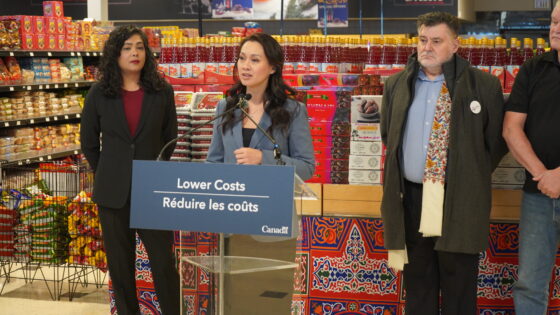BY SIMONE J. SMITH
“Don’t be afraid of people, be afraid of God!” Dr. Zev Zelenko
Hearing these words sent shivers down my back!
It was Friday afternoon, and I was sitting in an interview with Dr. Zev Zelenko. For most of the interview, I sat there taking notes, because what I was hearing helped me come to a realization of one thing:
WE as media consumers have to really start being conscious of the information we ingest.
The last few months have been a whirlwind. Since this pandemic began, mainstream media has done a number on our psychology, and many of us don’t even know it. Their method of entertainment; FEAR!
I was reading an article in Psychology Today called “Media, Fear, and the Coronavirus Outbreak,” (written by David A. Clark Ph.D.), and he brought up some very interesting points that I want to present to you today.
He mentions the fact that if we want to find threatening information about COVID-19, we never have to look very far. What we may not know is that how we react to this mixed health information depends on our preconceived beliefs about diseases and how susceptible we are to catching it.
He highlights a point that I have reiterated in most of my coverage of the pandemic; fear influences how we react to media coverage of health hazards. In an age of social media and 24-hour news, many of us are dealing with a severe case of information overload. We have information coming at us fast, and in real time, and we continue to engage in a continuous process of selective attention and filtering. Topics of health are important to many of us, so we will pay attention to information about disease and healthy living. I am actually riding on that fact when I write my articles.
I have to acknowledge my community members who are a little more fearful or anxious. I want you to realize that because of your thought patterns you will tend to pay more attention to threat related information, which in actuality makes your anxiety and distress worst. It doesn’t help that the media has decided to devote so much time to the coronavirus outbreak, it gives you plenty of opportunity for the contamination fear in your mind to spike. It is unfair, and one of our goals at the Toronto Caribbean Newspaper is to assist with that fear. How are we going to do that? By presenting you with stories of hope. This is what led to my interview with Dr. Zelenko.
Dr. Zev Zelenko has practiced medicine in Monroe, NY for the last sixteen years. He has cared for approximately 75% of the adult population of Kiryas Joel, which is a close-knit community of approximately 35,000 people. The outbreak of COVID-19 hit close to home for Dr. Zelenko because during the early part of the outbreak the infection spread rapidly and unchecked prior to the dissimulation of social distancing.
Dr. Zelenko was one of the first frontline doctors in America that began early in the pandemic treating his patients with hydroxychloroquine (HCQ) and zinc. News of his accomplishments spread far and wide, and he began working with government and health officials in: Brazil, Honduras, the Ukraine, and Russia. He was highly recognized and had correspondence with President Trump, Senator Ron Johnson, Chief of Staff Mark Meadows, and the Commissioner of the FDA, Dr. Stephen M. Hahn. His success with his patients had reached the ears of the American government, and they were listening. President Trump even referenced Dr. Zelenko as the inspiration for his decision to be treated with the drug.
Like everyone else who has provided an alternative, and preventative treatment to the coronavirus, Dr. Zelenko was slammed in the media, and cast as a right-wing shrill despite the fact that he had documented proof showing significantly fewer hospitalizations and five times less all-cause deaths.
“We could have prevented 84% of the deaths.”
Dr. Zelenko is not stand-alone when it comes to advocating for HCQ. In the last edition, I spoke with Dr. Stella Immanuel who also reported similar results in her patients. There have been international doctors who are also advocating for the use of HCQ and zinc. An extremely important point that has been raised by Dr. Zelenko, as well as other doctors is that treatment has to begin early.
“It is important that we treat clinical suspicion,” Dr. Zelenko explained to me.
“Within the first five days when symptoms start, the viral load or the amount of virus is relatively stable or constant. But around day six, it explodes like a wildfire.
Now most patients don’t come to the doctor right away. They come around day four or five…you wait until the results of the test, which takes three days, you get into day eight. And what happens by then is the patient is really sick, the fires out of control. So, the key is to treat based on clinical suspicion.”
Dr. Marcus Zervos (Division Head of Infectious Disease for Henry Ford Health System) echoed this at a news conference.
“What we think was important in our studies, is that patients were treated early. For hydroxychloroquine to have a benefit, it needs to begin before the patients begin to suffer some of the severe immune reactions that patients can have with Covid.”
Dr. Steven Kalkanis (CEO of the Henry Ford Medical Group) reiterated Dr. Zervos point when he stated, “It’s important to note that in the right settings, this potentially could be a lifesaver for patients.”
So why is it that mainstream media will not push this type of information. The easy answer is MONEY! Hydroxychloroquine stands in the way of trillions of dollars.
On March 17th, 2020, the AIFA Scientific-Technical Commission of the Italian Medicines Agency vetted the use of chloroquine and hydroxychloroquine for the treatment of COVID‑19. The FDA later said they had not given approval for the drug to be used in the treatment of COVID‑19 but was now allowing chloroquine under compassionate-use guidelines. It has been since then that the drug has become the focus of a media battle.
Of course, the individuals who want to make money off this virus would ensure that their interests were safe, so they conducted their own research. Based on the results of a study published in The Lancet, the World Health Organization (WHO) suspended hydroxychloroquine from its global drug trials for COVID‑19 treatments on May 26th, 2020 due to safety concerns raised in that study.
(I want to make a quick note here. Since vaccine company Astra Zeneca has begun their human vaccine trials; there have been two severe reactions to the given vaccine. The response from bought scientists, “This shows that the vaccine is working.”)
Let’s get back to the credible studies published by the Lancet. Three of four authors said neither chloroquine nor hydroxychloroquine (HCQ) with antibiotics hold any significant promise as a treatment for COVID-19. They stated that patients were at greater risk of death. The authors based their study on data provided by the US company Surgisphere, a healthcare analytics company.
Okay! Are you ready for this?
Since that initial report, the Lancet has retracted the article after an investigation by The Guardian revealed errors in the data that was provided for the research by Surgisphere. The authors stated that they were unable to complete an independent audit of the data underpinning their analysis. As a result, they concluded that they ‘could no longer vouch for the veracity of the primary data sources.’ Yes! Read that again.
Lancet is supposed to be one of the world’s top medical journals, and somehow, errors were found in research that supported the claims of the World Health Organization. Oh, there is more.
The New England Journal of Medicine retracted a separate study focused on blood pressure medications in COVID-19 that relied on data from Surgisphere.
“We can no longer vouch for the veracity of the primary data sources,” Mandeep Mehra of Brigham and Women’s Hospital, Frank Ruschitzka of University Hospital Zurich, and Amit Patel of University of Utah said in a statement issued by the Lancet. “Due to this unfortunate development, the authors request that the paper be retracted.”
I find that interesting. What is even more interesting is that mainstream media has not reported this.
“How much is human life worth?”
In our interview, Dr. Zelenko detailed his Three Drug Approach, and according to him, he has seen only positive results:
- Any patient with shortness of breath regardless of age is treated.
- Any patient in the high-risk category even with just mild symptoms is treated.
- Young, healthy and low risk patients even with symptoms are not treated (unless their circumstances change and they fall into category 1 or 2).
My (Dr. Zelenko) outpatient treatment regimen is as follows:
- Hydroxychloroquine 200mg twice a day for 5 days
- Azithromycin 500mg once a day for 5 days
- Zinc sulphate 220mg once a day for 5 days
- The Zelenko Protocol: https://thezelenkoprotocol.com
What Dr. Zelenko did is combine the data available from China and South Korea with recent studies published in France. “We know that hydroxychloroquine helps Zinc enter the cell,” he begins to explain to me. “We know that Zinc slows viral replication within the cell. Zinc kills the virus. Zinc needs help to get inside the cell. HCQ opens the door and lets zinc in.
Regarding the use of azithromycin, I hypothesize that it prevents secondary bacterial infections. These three drugs are well known and usually well tolerated; hence the risk to the patient is low.”
Dr. Zelenko’s recommendation is to initiate treatment in the outpatient setting as soon as possible in accordance with the above. Based on his direct experience: it prevents acute respiratory distress syndrome (ARDS), prevents the need for hospitalization and saves lives.
What I learned about Dr. Zelenko during our interview is he is also dealing with his own health issues. He has cancer, is living with one lung, and has heart issues that required surgery.
Somehow, he continues to treat patients, and fight the good fight. Keep this humanity warrior in your prayers, and in your thoughts. We need men like him to ensure that our future remains healthy and strong.
Stay in the loop with exclusive news, stories, and insights—delivered straight to your inbox. No fluff, just real content that matters. Sign up today!
We, as humans are guaranteed certain things in life: stressors, taxes, bills and death are the first thoughts that pop to mind. It is not uncommon that many people find a hard time dealing with these daily life stressors, and at times will find themselves losing control over their lives. Simone Jennifer Smith’s great passion is using the gifts that have been given to her, to help educate her clients on how to live meaningful lives. The Hear to Help Team consists of powerfully motivated individuals, who like Simone, see that there is a need in this world; a need for real connection. As the founder and Director of Hear 2 Help, Simone leads a team that goes out into the community day to day, servicing families with their educational, legal and mental health needs.Her dedication shows in her Toronto Caribbean newspaper articles, and in her role as a host on the TCN TV Network.













Stephen S
October 1, 2020 at 4:12 am
This article comes later in Canada, but still very useful.
Don Ross ppl
October 1, 2020 at 11:18 pm
Have followed VLADIMIR ZELENKO since march of this year, he is a God fearing person, who wants the truth to be known,he is a very caring doctor, who puts his patients first, above everything else, he has many health problems of his own ,if only politicians in government had listened to him , and acted on his advice. Many lives could have been saved, this man needs our prayers? May GOD BLESS this man and his family.
Honiver
October 2, 2020 at 10:39 am
Tha k u what about 3 times a day hcq? In algeria they use zenc hcq 3 times 6ppmg and athroma but the patient with chronic desases the doctors don t give them hcq
situs judi bola terpercaya indonesia
October 2, 2020 at 10:52 pm
Great article! That is the type of information that should
be shared around the web.
beki vitas
October 4, 2020 at 7:38 am
God bless and protect this good Doctor
Amir Rabinowitz
October 5, 2020 at 8:32 pm
אלוהים יברך אותך ד”ר זלנקו
Abarrane
October 7, 2020 at 8:28 pm
יש להכיר בד”ר זלנקו כגיבור לאומי
Igor
October 8, 2020 at 7:38 am
Это очень полезная статья. Продолжайте сообщать о подобной информации. Миру нужно больше решений.
Prakash S.
October 8, 2020 at 7:34 pm
This is good information for the community. I appreciate the report. Well done
Dwain B
October 8, 2020 at 8:35 pm
Thank you for this info. I’m happy he gave us some over the counter natural solutions as well
Sherry Abdul
October 8, 2020 at 8:36 pm
SHARE THIS INFO WIT YOU FAMALYYYYYY!